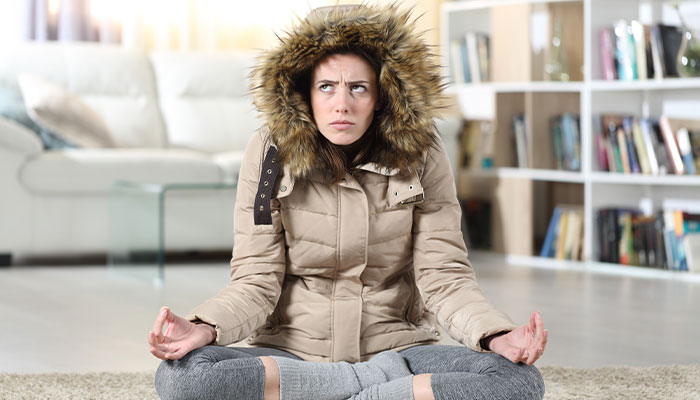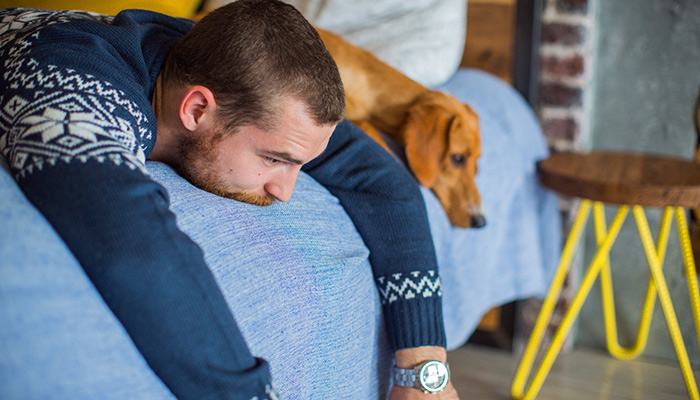Take a jumper or you’ll get a chill. You’ll catch pneumonia! Take your vitamin C and you won’t get sick. Close the window – there’s a draft.

Fact v fiction: When we get sick, it's not due to 'catching a chill'.
We’ve all heard these and others countless times, but are they myth or fact?
General practitioner Dr Heather Knox says getting a cold from being cold is definitely a myth.
“Your mum wasn’t wrong to tell you to take a jumper – we should always dress to suit the weather conditions – but under normal circumstances, a healthy person won’t get sick from just feeling a bit chilly,” she says.
“When we get sick, it’s due to viruses or bacterial infections, not ‘catching a chill’.
If your body is already struggling for whatever reason, it doesn’t need any extra strain.
“You can see why it’s a common misconception, though. We get sick more often in the cold weather when viruses like colds and the flu are more prevalent, and that’s also when we’re inside more and close to other people so it’s easier to pass bugs around.”
Just like winter viruses, contracting pneumonia is not related to getting cold. Pneumonia describes inflammation of the air sacs in the lungs and may be viral or bacterial in origin, sometimes developing from a less serious respiratory infection; it can also be caused by inhaling food or liquid.
Some lung conditions, like chronic obstructive pulmonary disease (COPD), which used to be known as emphysema, can also make a person more susceptible to contracting pneumonia.
Can being cold be dangerous?
Just like being too hot, being cold puts an extra burden on the body, forcing it to work harder to maintain its regular core temperature, which usually sits around 37 degrees Centigrade.
Even if our skin feels cool, our bodies are maintaining this core temperature, which is the optimum level for our vital functions to take place.
If it drops below 35 degrees, hypothermia occurs. At this point, vital functions begin to shut down and there is a real risk of the person dying.
However, this only happens if someone is exposed to low temperatures for a long time, and some people are more susceptible than others.
The risk to older people
Maintaining a regular body temperature becomes more difficult for older people, very young children, and anyone who is fighting other health issues or recovering from a virus.
“If your body is already struggling for whatever reason, it doesn’t need any extra strain,” Knox says.
“We always recommend that older people keep warm in winter. As we age, all the things our bodies need to do become more difficult, and this includes the ability to regulate temperature.
We’d all love there to be a magic bullet to prevent colds, but unfortunately there isn’t one.
“Older people might also have other problems like Parkinson’s disease, stroke or complications from diabetes, or be on medication that interferes with body temperature.”
She says something that can be extremely dangerous for an older person is having a fall and lying on a cold floor for an extended period, especially at night when they might have got out of bed to go to the bathroom and are underdressed.
Not only are they at risk from any injuries they might sustain when they fall, but if they are unable to get up, they could develop hypothermia, or a condition called rhabdomyolysis, which causes muscle to break down and release proteins that are poisonous to the kidneys.
What about getting wet?
It’s a common scene in classical literature and historic movies: the character goes out in the rain and ends up desperately ill. But would that ever happen?

Weather or not: A healthy person should not become ill from getting wet, says Dr Knox.
“Being wet makes you colder because of increased evaporation, and that will make the body struggle to maintain core temperature,” Knox says.
“Drafts or wind would have the same effect, so if you are recovering from a virus or have other health issues, it’s sensible not to make your body work harder than it needs to.
“But just the same as being cold, a healthy person would not become ill from getting wet or being in a draft.”
Will supplements keep us healthy?
Many people swear by preventatives like vitamin C, zinc and echinacea to boost their immune systems, but we have some bad news.
“We’d all love there to be a magic bullet to prevent colds, but unfortunately there isn’t one,” Knox says.
“There’s no proof that any of these supplements will make you less likely to get winter viruses, or help you recover from them more quickly.
“We hear anecdotal evidence from people who say they take vitamin C every day and they haven’t had a cold in years, but there’s no scientific proof to back it up.
“Extra vitamins won’t hurt you, but they’re expensive, and our bodies just get rid of any excess they don’t need, mostly via our urine.
“If you have a nutritional deficiency, like iron or vitamin D, that needs to be addressed. But if you’re eating a balanced diet that includes fruit and vegetables, you’re probably getting everything your body needs.
“However, I can’t stress enough the importance of being vaccinated against COVID-19 and the flu, especially for older people and other at-risk groups, as this reduces your likelihood of becoming seriously ill.”
Dr Heather Knox is a general practitioner at MQ Health’s GP Clinic, located on the Macquarie University Campus.



